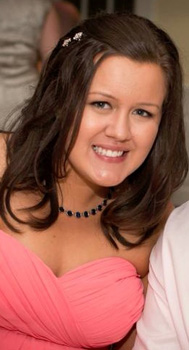
Bobbie Downs
Bobbie Downs saw firsthand how genocide affects people when she taught Sudanese refugees in Cairo, and she will expand on this knowledge when she joins survivors, educators, students and thousands of others to attend the 70th anniversary of the liberation of Auschwitz on January 27.
Downs will join 24 other teachers from around the world to help commemorate the 70th anniversary of the liberation of Auschwitz in Poland by learning new methods for teaching the Holocaust. They were chosen to attend the Auschwitz: The Past is Present professional development program led by USC Shoah Foundation and Discovery Education to commemorate the 70th anniversary of the liberation of Auschwitz. The educators from 11 different countries representing four continents will attend a four-day workshop designed to deepen their understanding of the historical landscape of Poland before, during and after the Holocaust and increase their knowledge of authentic sites including Auschwitz-Birkenau.
Downs teaches world and US history and is assistant director at Burlington County Alternative High School in Pemberton, New Jersey. She was inspired to become a teacher six years ago after spending a year teaching Sudanese refugees in Cairo, Egypt. The experience drew on her interest in the Holocaust and deepened her passion for teaching about genocide, she said.
She said that going to Poland on Auschwitz: The Past is Present will enrich her own understanding of the Holocaust, which will in turn improve her teaching. She hopes to show her students not just the magnitude and complexities of the Holocaust but also how individuals were affected by it, through her experiences during the program and interactions with survivors at the commemoration.
“I think it also strengthens my credibility with my students when I can say I have walked in the place or talked to people who have experienced it. It’s funny how they think it’s so “cool” when I tell them stories,” Downs said.
The first-person perspective of survivors and witnesses is extremely important because students respond to hearing them tell their stories, Downs said. She finds testimony to be a “tremendous” form of a primary source and thinks it should be used as often as possible.
Downs believes in the adage that those who do not learn from history are doomed to repeat it, and said she wants her students to “be part of a generation that will not allow genocide to happen ever again.” To do this, they need to know how it happened and also how it continues to affect people today.
“They also need to understand how certain parts of the world and certain people are still recovering from the Holocaust,” she said.